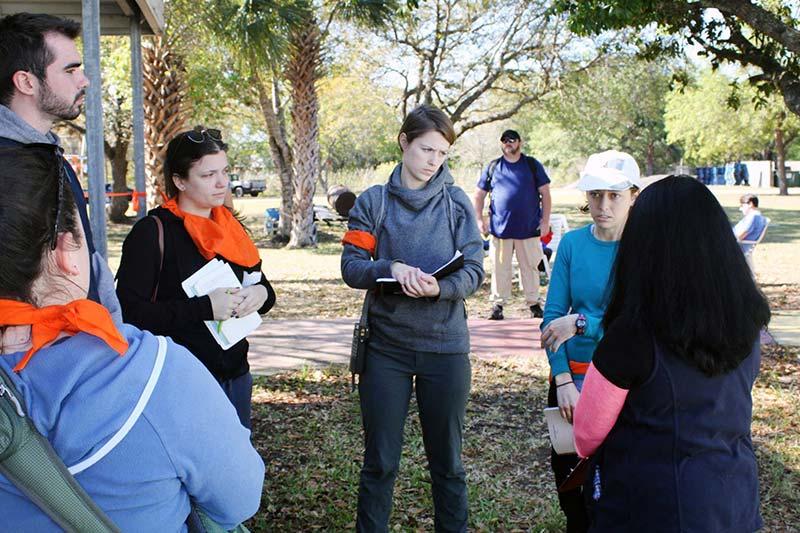Students train for perfect storm
For four days this spring, seven graduate students from Tulane University’s Disaster Resilience Leadership Academy (DRLA) pretended they were in the throes of a real humanitarian crisis – a Category 4 hurricane coupled with a military uprising.
The simulation was part of the Forage Center for Peacebuilding and Humanitarian Education’s annual four-day field training in Fellsmere, Florida, which with the help of community volunteers was transformed into the fictitious country of Atlantica.
The Tulane students worked with students from George Mason, Wayne State, Kennesaw State and Nova Southeastern universities as preparation for careers in the humanitarian field.
“It’s so valuable to have an environment like this to practice everything you’ve been learning before deploying into the field as a responder or aid worker.”
Jennifer MacNeill, DRLA program graduate
“Our partnership with the Forage Center allows students the opportunity to test their acquired skill sets and overall readiness for entering the complex field of global humanitarian assistance,” said Meredith Feike, a DRLA professor and director of student affairs.
The field training recreated the challenges and conditions professionals encounter in complex emergencies characterized by conflict, disaster and humanitarian need.
Acting as members of a fictitious humanitarian assistance organization, the students engaged in intensive negotiations, humanitarian assistance, peace-building assessment and human rights advocacy, all to help a suffering population in the midst of crisis. The exercise purposely combined students from different schools to build interpersonal relationships, teamwork and negotiation skills under stressful conditions.
“I enjoyed setting up an IDP (internally displaced person) camp, running the medic tent, dealing with a fake cholera outbreak and all the crazy escalations they kept throwing at us,” said DRLA student Leila Darwish.
Jennifer MacNeill, a recent graduate of the DRLA program who served as a controller/evaluator, said the experience is invaluable to anyone training to work in the humanitarian field.
“In my opinion, there is no substitute for a hands-on experience,” she said. “It’s so valuable to have an environment like this to practice everything you’ve been learning before deploying into the field as a responder or aid worker.”
Visit the Disaster Resilience Leadership Academy website for more information on the graduate program.
Like this article? Keep reading: Book examines Vietnamese community’s successful post-Katrina recovery

